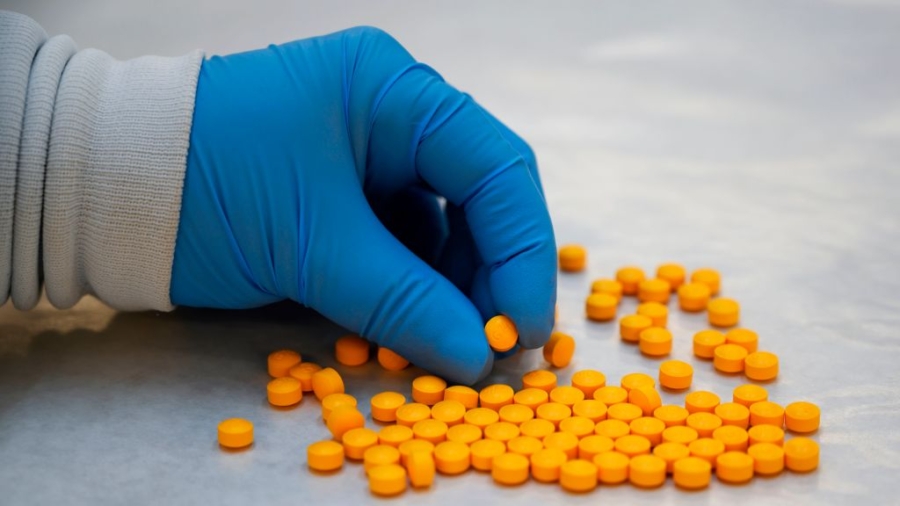Despite the Chinese regime banning fentanyl and its analogues in 2019, China remains the primary source of illicit fentanyl and fentanyl-related substances being trafficked into the United States, according to a new report by a U.S. congressional advisory body.
Chinese traffickers have found sophisticated ways to circumvent these regulations, said an Aug. 24 U.S.–China Economic and Security Review Commission (USCC) report. This includes shifting their business from manufacturing finished fentanyl to exporting precursors to Mexican cartels, who then produce and traffic the drug across the border.
Moreover, these evasion efforts have been enabled by the Chinese regime’s “weak supervision and regulation” of its chemical industry, the report said.
These findings come as U.S. agencies continue to grapple with the country’s devastating opioid crisis fueled by a surge in the use of fentanyl, a synthetic opioid 50 times more potent than heroin, and its variants in recent years.
The United States in 2020 saw a record number of overdose deaths from synthetic opioids at more than 56,000—a rise of 20,000 from the year before, according to provisional data by the National Center for Health Statistics.
Chinese Traffickers Embrace Mexican Cartels
Since Beijing’s ban on fentanyl in 2019, there has been a decline in the amount of finished fentanyl shipped directly from China—typically by mail—into the country, the report said, but illicit fentanyl has remained widely available in the United States.
Now, the drug mainly comes in from Mexico, with precursors being sourced from China.
To evade authorities, Chinese traffickers have pivoted their operations to focus mainly on producing and shipping chemical precursors to Mexico, the USCC said, citing the U.S. Drug Enforcement Administration (DEA). This has also meant that Chinese traffickers have increased their cooperation with Mexican cartels, particularly with the country’s two most powerful crime syndicates, the Sinaloa cartel and the Jalisco New Generation cartel.
These cartels control “pill mills” in Mexican cities—areas that manufacture finished fentanyl from the China-sourced precursors. They then smuggle the drug into the United States.
“The growing involvement of Mexican cartels and advanced money laundering schemes have exacerbated the problem,” the report said.
Meanwhile, Chinese money launderers have been working to aid Mexican drug cartels in their criminal operations, the USCC said. U.S. prosecutors in recent years have charged several Chinese nationals for laundering money for drug cartels. In one case, Gan Xianbing, a Chinese national, was sentenced to 14 years over a money-laundering operation for Latin American cartels that involved tens of millions in drug money.
Limited US-China Cooperation
While U.S. and Chinese authorities have worked together to dismantle some illegal fentanyl networks, cooperation between the two sides “remains limited on the ground,” the congressional body said.
“There remain significant gaps in U.S.-China antidrug cooperation, especially in enforcement and criminal prosecution,” the report said.
Chinese regulators continue to delay requests to access potential sites where precursors are made, according to the USCC. The delay often takes days, “allowing any illegal operation to vacate or clean up the premises,” it said.
During the investigation of the Gan case, the DEA did not receive any support from its Chinese counterpart, despite multiple informal requests for assistance, the report said.
It also cited retired DEA agent Jeffrey Higgins, who told the USCC in 2018 that he felt “China is merely seeking to create the appearance of cooperating with U.S. officials, while not enacting any reforms.”
In response to the report’s findings, the Chinese foreign ministry told Reuters that the accusations were unreasonable and unacceptable, saying the regime has strictly controlled all narcotics, psychotropic drugs, and chemical precursors.
In 2019, the Chinese narcotics official admitted that cooperation between China and the United States on investigating and prosecuting fentanyl was “extremely limited.”
The DEA and U.S. State Department did not return requests for comment.
From The Epoch Times

